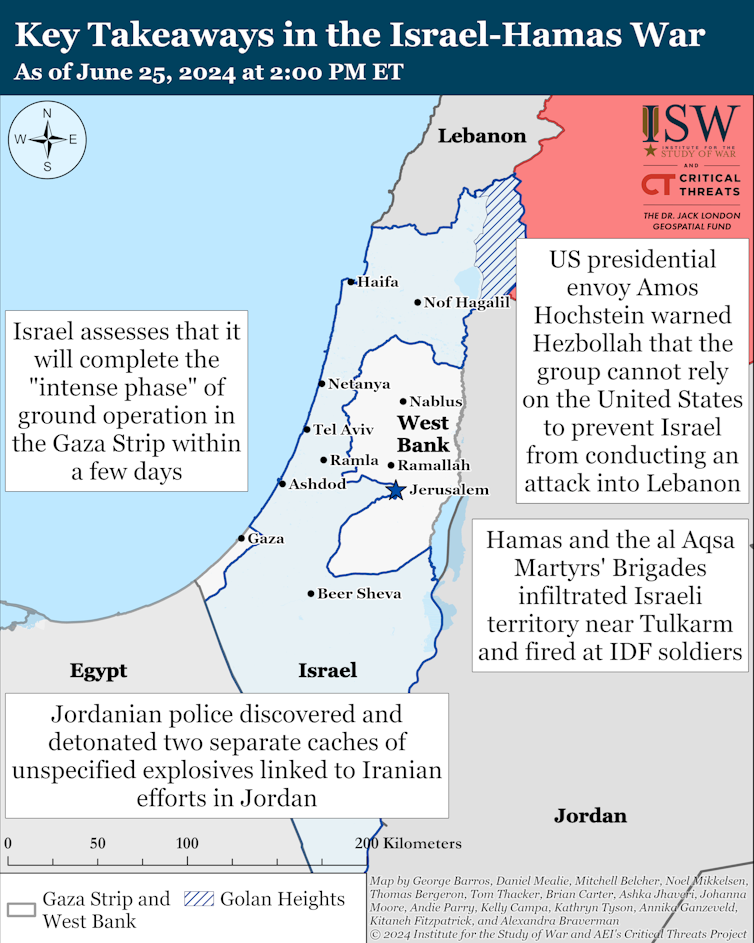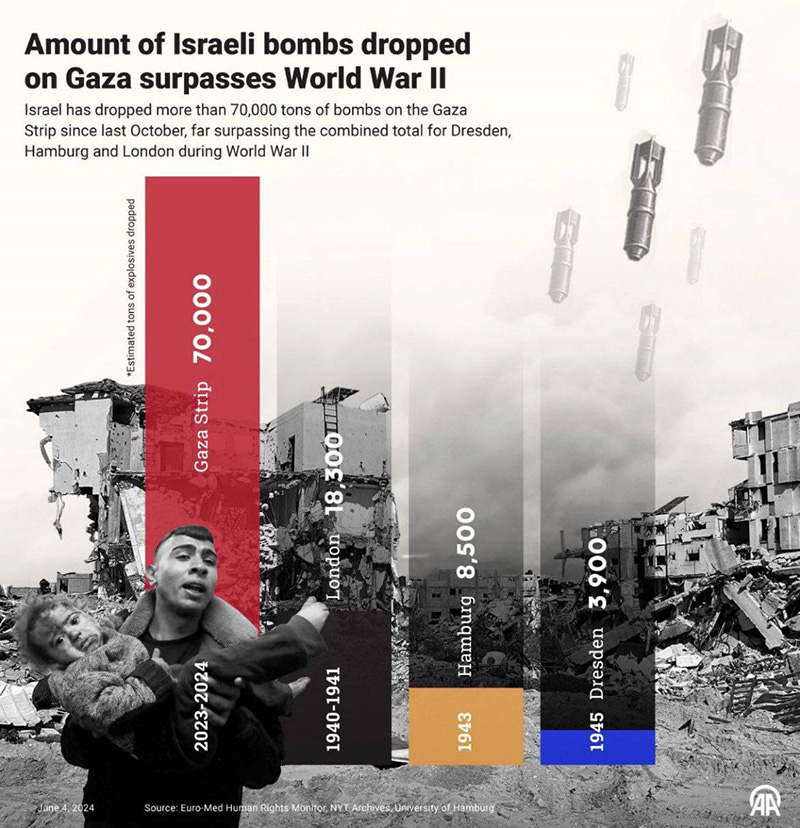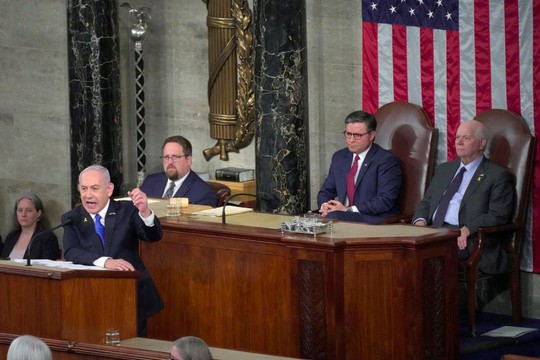Benjamin Netanyahu at U.S. Congress
Photo: The Star
The goal of Benjamin Netanyahu’s trip to Washington, including his appearance before the U.S. Congress, is not and never was to advance a diplomatic agreement to bring home the Israeli hostages safely while they are still alive and to bring an end to the fighting and the suffering. Rather, it is designed to enlist domestic American support to keep waging the war, writes ‘Haaretz’.
Specifically, Israel needs ammunition and the Biden administration is still delaying delivery of some of it. Netanyahu came to do what he does best, which is to exert political and public pressure on the White House by addressing the House of Representatives and speaking in front of television cameras.
In his speech, Netanyahu first sought to paint the war in universal terms, devoid of the specifics of the conflict, a war between the sons of light and the sons of darkness, Hollywood style, with biblical motifs intended to delight Christian Republicans. He then went on to deliver this message, namely that this is a proxy war of Iran against the United States. Israel is fighting America’s war, Israel is defending America, our war is their war, our victory will be their victory. Therefore, our weapons are your weapons. Deliver them as soon as possible.
In this framing of the Gaza war, Netanyahu took to the extreme Israel’s role as a pro-American protectorate that aims to serve the regional interests of its master and yet has been abandoned without adequate military assistance.
Besides the plea for arms on Capitol/Ammunition Hill, Netanyahu sought in his address to rally American support against the proceedings at the two international courts in The Hague. These proceedings threaten Israel but also the prime minister personally due to the possibility that the International Criminal Court will issue an arrest warrant that prevents him from traveling freely around the world.
In addition, Netanyahu sought to justify Israel’s continued control of the Gaza Strip for an open-ended period. In contrast to his vigorous denials that Israel has no intention to reestablish settlements there, what Netanyahu calls demilitarization and Israeli security control can very quickly pave the way for actual settlements. Like the de facto annexation of the West Bank, de facto settlement always gets its start under the guise of security.
But no less important was the bit that was missing from the address. The enthusiastic applause might have left the impression that he had bipartisan support, when in fact dozens of Democratic lawmakers did not come to hear the speech at all.

On June 19 the spokesperson for the Israel Defense Forces (IDF), Rear Admiral Daniel Hagari, told Channel 13 News that the aim of eradicating Gaza’s leadership was unattainable.
This business of destroying Hamas, making Hamas disappear — it’s simply throwing sand in the eyes of the public. Hamas is an idea, Hamas is a party. It’s rooted in the hearts of the people — anyone who thinks we can eliminate Hamas is wrong.
At one level, the IDF spokesperson was merely restating what analysts had cautioned just after Hamas’ killing of 1,143 people, including 767 civilians, and its abduction of around 250 others. An all-out military assault, from the air and on the ground, would allow Hamas to present itself as the protector of Gaza’s civilians, even as Israel killed many thousands of them.
But, at another level, this was the Israeli military’s challenge to Netanyahu, notes Scott Lucas, a professor of international politics, Clinton Institute, University College Dublin.
Netanyahu had snapped at a cabinet meeting: “To achieve the goal of destroying Hamas’s capabilities I’ve had to make decisions that weren’t always accepted by the military leadership.”
Now the IDF was effectively saying to the prime minister that his plan A of destroying Hamas was not viable. So what is plan B?
In Hagari’s words: “If the government doesn’t find an alternative – [Hamas] will remain in Gaza.”
In a tactical retreat, the IDF issued another statement that it was committed to stated war goals, including destroying Hamas’s governing and military abilities. Hagari had merely spoken about “eradicating Hamas as an ideology and an idea”.
But there is no prospect of his promised destruction of Hamas. Or that Gaza’s civilians, facing death, starvation, and deprivation each day, will rise up against the leadership.
In a rare enforcement of a “red line”, the US checked any plan for an all-out ground assault on Rafah. To hold off pressure, Netanyahu has made vague statements about a redeployment of the army, while persisting with bombs on Hamas and civilian alike.
So with no plan B, what does Netanyahu do to stem the pressure upon him from inside and outside Israel? He plays for time. In the past week, Netanyahu has said he supports only a “partial” hostage deal with Hamas, so Israel could resume fighting after women, the elderly, and sick were released.
He has picked a fight with the US about the supply of American weapons for Israel’s war. And he has threatened to expand the fighting with Hezbollah across the Lebanese border in the north.
None of these are a Gaza plan B. They are Netanyahu’s personal plan A. Throw out a daily distraction or diversion to avoid a media focus on the ceasefire talks, on the carnage in Gaza, or on the failure to “destroy” Hamas.
The IDF’s warning, combined with Gantz’s departure from the war cabinet is a signal that they are weary of an open-ended assault with no political vision.
But when will that weariness lead to a decisive rejection of Netanyahu’s approach? For now, given that the defence minister, Yoav Gallant, has not indicated he will make a break – and given the pressure from hard-right ministers to ethnically cleanse Gaza in a long-term occupation – that question, like Netanyahu’s options, has no answer.

read more in our Telegram-channel https://t.me/The_International_Affairs

 10:06 28.07.2024 •
10:06 28.07.2024 •























